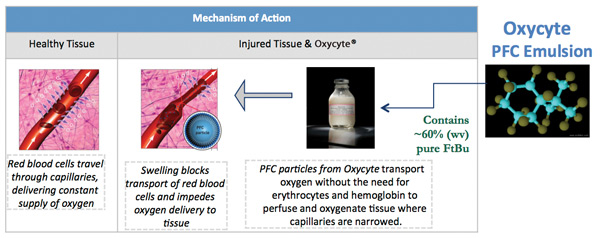A list of recent clinical trials for drugs in development.
Many drug candidates are going through clinical trials right now. Which ones should you be paying attention to? Each month, GEN features a Clinical Trials section focusing on the candidates we think you need to watch carefully. Anyone of these drugs could be the next big therapeutic.
Autoimmune and Inflammatory Diseases
> Idera Pharmaceuticals presented results of a Phase I trial of IMO-8400, a first-in-class antagonist of Toll-like Receptors (TLRs) 7, 8, and 9 being developed for potential applications in autoimmune and inflammatory diseases. In this study, IMO-8400 was administered at single escalating dose levels and multiple dose levels weekly for four weeks. IMO-8400 was well tolerated at all dose levels. IMO-8400-treated subjects showed inhibition of TLR 7-, 8-, and 9-mediated cytokines, including tumor necrosis factor-alpha, interleukin-1 beta, interleukin-6, interferon-alpha, and other pro-inflammatory cytokines.
This randomized, double-blind, placebo-controlled trial enrolled 42 subjects. The single-dose portion of the trial involved three escalating dose levels of 0.1, 0.3, and 0.6 mg/kg of IMO-8400 or placebo, with six subjects receiving each treatment. The multiple-dose portion of this trial involved two dose levels of IMO-8400, 0.3 and 0.6 mg/kg, and placebo, with six subjects receiving each treatment for four weekly doses. Safety and tolerability were monitored throughout the study. Pharmacokinetic activity and pharmacodynamic activity were monitored at specific times.
Brain Injury
> Oxygen Biotherapeutics enrolled the first subject in the second cohort of its global Phase IIb trial to investigate Oxycyte® in patients with severe, nonpenetrating traumatic brain injury (STOP-TBI).
The STOP-TBI trial is a randomized, double-blind, placebo-controlled dose-escalation study. The primary objective of the trial is to evaluate the safety and tolerability of Oxycyte. The secondary objective is to assess the potential of Oxycyte in ameliorating the severity of TBI and represents an opportunity for the collection of placebo-controlled efficacy data, specifically, clinical and functional improvement. Functional status will be measured by the Glasgow Outcome Scale–Extended, a validated tool that helps to assess progress in patient recovery from their injury.

Oxygen Biotherapeutics’ Oxycyte is being evaluated in patients with severe, nonpenetrating traumatic brain injury.
Cancer
> Bellicum Pharmaceuticals initiated treatment of the first patient in a study of BPX-201 dendritic cells in combination with activating agent AP1903. The Phase I dose-escalation trial in patients with metastatic castrate resistant prostate cancer was designed to evaluate the safety, tolerability, and clinical outcomes of BPX-201 and AP1903, which incorporate the company’s second-generation DeCIDe™ immunotherapy technology.
The trial will enroll 18 adult males from three U.S. centers with progressive metastatic castrate resistant prostate cancer who have not received prior chemotherapy.
The trial consists of three cohorts of six patients each receiving escalating doses (10 million, 20 million, and 40 million cells) of BPX-201, respectively, over six treatment cycles. Patients are treated every other week with BPX-201, followed by infusion of activating agent AP1903 approximately 24 hours after each treatment. Patients will be evaluated for safety, prostate specific antigen response, progression-free survival, and reduction in circulating tumor cells.
> VentiRx Pharmaceuticals initiated ACTIVE8, a randomized, placebo-controlled, Phase II trial evaluating VTX-2337 in combination with a standard of care regimen, cetuximab, platinum, and 5 Fluorouracil (5-FU), in patients with recurrent or metastatic squamous cell carcinoma of the head and neck.
The study will randomize 175 patients to receive either VTX-2337 or placebo in combination with cetuximab, platinum, and 5-FU chemotherapy. The primary endpoint of the trial will be progression-free survival as determined by Immune Related Response Evaluation Criteria in Solid Tumors.
VTX-2337 is a small molecule TLR 8 agonist that directly activates multiple components of the innate immune system. This includes activation of human myeloid dendritic cells, monocytes and natural killer cells resulting in the production of high levels of mediators known to orchestrate the integration of innate and adaptive antitumor responses.
Diabetes
> Oramed Pharmaceuticals enrolled the first patient in a Phase IIa trial of ORMD-0801, an orally ingestible insulin capsule, in patients with type 2 diabetes. The current trial is to be a randomized, double-blind study designed to assess the safety of ORMD-0801.
Hemophilia A
> Bayer HealthCare started to enroll patients in an international Phase II/III trial to evaluate its investigational compound BAY94-9027 for the treatment of hemophilia A in children. The PROTECT VIII (Prophylaxis in hemophilia A patients via directly pegylated long-acting rFVIII) Kids trial is designed to determine the effects of BAY94-9027, a recombinant human factor VIII (rFVIII), when used as prophylaxis, dosed at least once weekly and as on-demand for acute bleeding events.
Huntington’s Disease
> Auspex Pharmaceuticals enrolled the first patient in a multicenter Phase III trial of SD-809 for the treatment of involuntary movements (chorea) associated with Huntington’s disease (HD). The randomized, double-blind, placebo-controlled study will test the efficacy, safety, and tolerability of SD-809 in the management of chorea symptoms in 90 HD patients who have not previously taken tetrabenazine.
The primary endpoint for the study will be Total Maximal Chorea score. Secondary endpoints will include treatment success measurements based on patient and clinical global impressions of change.
According to the company, SD-809 inhibits vesicular monoamine transporter type 2, decreasing the amount of dopamine available to work at nerve terminals, and thereby reducing involuntary movements.



